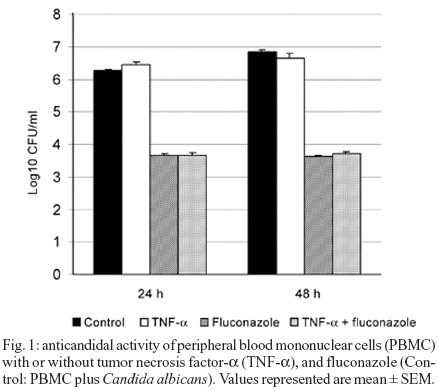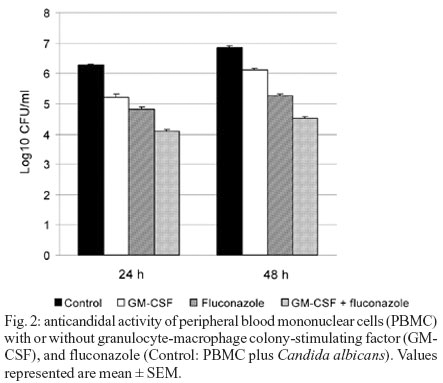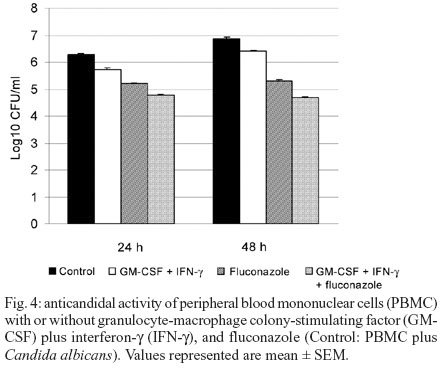Candida infections are common infections and fluconazole is one of the most frequently administered antifungal agents in their treatment. The resistance developed against antifungal agents has necessitated the improvement of new treatments. This study focuses on the investigation of the effect of fluconazole and cytokines such as interferon-gamma (IFN-gamma), tumor necrosis factor-alpha (TNF-alpha), granulocyte-macrophage colony-stimulating factor (GM-CSF) on chemokine production and anticandidal activity of human monocytes. In the study it was observed that GM-CSF caused an increase in candidacidal activity of monocytes. Anticandidal activity of GM-CSF + IFN-gamma combination was not found to be more effective than GM-CSF or IFN-gamma alone. The presence of cytokine and fluconazole caused an increase in the levels of CCL3 and CCL4 chemokines. Accordingly, it was considered that chemokines could contribute to the efficacy of fluconazole in C. albicans infections. Besides, in order to strengthen the immune system some cytokines might be used in addition to antifungal agents for the treatment.
Candida albicans; fluconazole; cytokines; chemokines






